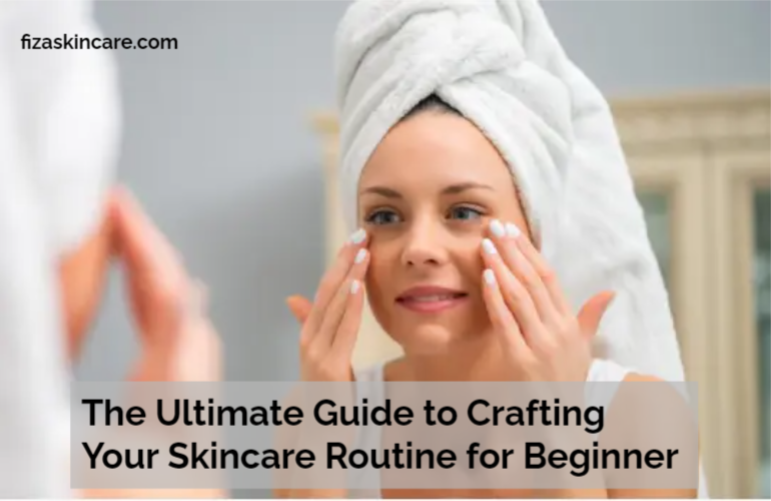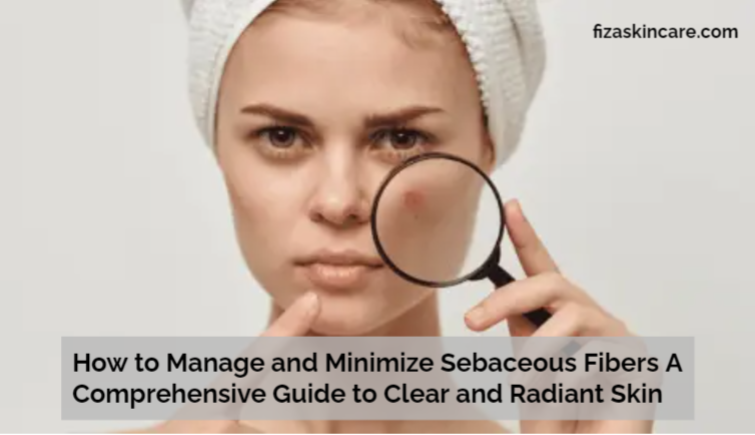Hair Loss Treatments can be a discomposing experience, impacting both men and women likewise. Whether it’s manly pattern hair loss or thinning hair in ladies, chancing the right treatment is pivotal for refreshening confidence and promoting hair regrowth. In this composition, we will explore chromatic hair loss treatments, curatives, and results to help you make informed opinions grounded on your specific requirements.
Hair loss is a common or garden concern that affects individuals of all periods and genders, but it can be specifically distressing for women. Whether it’s hair falling out post-pregnancy or the more persistent androgenic hair loss, understanding the causes and finding suitable treatments are vital steps towards regaining confidence and promoting healthy hair. In this essay, we will explore the colorful accountings behind hair loss in women and claw into efficacious treatments for both forestallment and restoration.
Hair loss is a common concern for both men and women, affecting tone- regard and confidence. Whether you are trafficking with a retreating hairline, itchy crown, or general hair thinning, understanding the causes and exploring effective medicaments is essential. In this composition, we’ll claw into colorful hair loss medicaments for both women and men, aiming to give perceptivity into recovering a healthy and vibrant head of hair.
Floundering with hair loss can be a grueling trip, impressing both men and ladies. Fortunately, a myriad of treatments is available to address this common or garden concern, ranging from professional interventions to at-home remedies. In this composition, we’ll research effective hair loss treatments for both men and women, tendering perceptivity on how to check hair fall and promote regrowth.
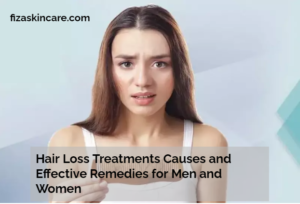
Understanding Hair Loss:
Before probing into treatments, it’s essential to understand the commonplace causes of hair loss. attorneys similar as genetics, hormonal changes, nutritive scarcities, and stress can contribute to hair thinning and baldness. relating the root cause can guide you toward the most effective treatment.
Topical Treatments:
- Minoxidil:This disadvantageous drug is one of the most extensively used treatments for both men and females. Minoxidil helps stimulate hair follicles, advancing filament growth and precluding farther loss.
- Topical Steroids: For certain types of hair loss, such as alopecia areata, topical steroids can be prescribed to reduce inflammation and encourage hair regrowth.
Oral Medications:
- Finasteride: Typically prescribed for men, finasteride inhibits the hormone responsible for male pattern baldness. Still, it isn’t committed for women, especially those who are enceinte or planning to conceive.
- Anti-Androgen specifics:Spironolactone is an illustration of an anti-androgen drug that can be specified for females with androgenetic alopecia.
Low-Level Laser Therapy (LT):
LT involves using low-level lasers or light-emitting diodes to stimulate hair follicles. Thisnon-invasive treatment can be apportioned through ray combs, helmets, or caps.
Nutritional Approaches:
Ensuring a balanced diet with essential nutrients like vitamins, minerals, and proteins is crucial for healthy hair. Supplements such as biotin, iron, and zinc may also be recommended.
Lifestyle Modifications:
Managing stress through techniques like meditation and yoga can positively impact hair health. Avoiding harsh styling practices and chemical treatments can also prevent further damage.
Hair Transplant Surgery:
For those seeking a more permanent solution, hair transplant surgery involves the transplantation of hair follicles from a donor area to the balding or thinning area.
Common Causes of Hair Loss in Women:
Androgenic Alopecia:
Also comprehended as womanish pattern baldness, androgenic alopecia is a heritable condition that can lead to gradational hair thinning, specifically at the crown and along the part line.
Postnatal Hair Loss:
Many women experience hair loss after childbirth, known as postnatal hair loss. This temporary condition is often a result of hormonal fluctuations, and hair typically regrows within a few months.
Hormonal Changes:
Hormonal shifts during menopause, pregnancy, or the use of birth control pills can contribute to hair loss.Dedicating and addressing these hormonal imbalances is pivotal for efficacious treatment.
Nutritional Deficiencies:
Inadequate intake of essential nutrients such as iron, vitamins (especially B vitamins), and proteins can lead to hair loss. A well-equalized diet and supplements when necessary can assist in maneuvering this issue.
Stress and Emotional Factors:
High stress levels can trigger a type of hair loss called telogen effluvium, where more hair than usual enters the resting phase and subsequently falls out. contending stress through relaxation ways is indispensable for hair health.
Effective Hair Loss Treatments for Women:
Topical Minoxidil:
Minoxidil is a topical result approved by the FDA for treating womanlike design baldness. It stimulates hair follicles, promoting regrowth. Consistent and long-term use is often necessary.
Hormone Therapy:
For women with androgenic alopecia, hormonal remedy, analogous to spironolactone or oral contraceptives, can help constrain hormonal imbalances and decelerate hair loss.
Platelet-Rich Plasma (PRP) Therapy:
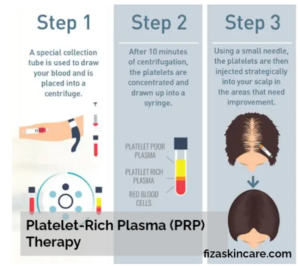
PRP remedy involves using the case’s kindred to amp hair follicles. It can be fruitful for colorful descriptions of hair loss, including androgenic alopecia.
Nutritional Supplements:
Supplements containing biotin, iron, zinc, and other essential nutrients can support overall hair health and address deficiencies.
Professional Guidance:
Consulting with a dermatologist or healthcare professional is crucial for accurate diagnosis and personalized treatment plans. They can assess the express causes of hair loss and suggest the most applicable interventions.
Understanding Hair Loss Causes:
Female Pattern Hair Loss:
feminine pattern hair loss, or androgenic alopecia, is a commonplace cause of hair thinning in women.It is often hereditary and can be triggered by hormonal changes.
Male Pattern Baldness:
Male pattern baldness is characterized by a receding hairline and thinning at the crown. It’s primarily influenced by genetic factors and hormonal changes.
Itchy Scalp and Hair Loss:
An itchy crown can be a sign of colorful contingencies, similar as dandruff, psoriasis, or dermatitis, which may contribute to hair loss. relating and treating the underpinning crown issue is critical.
Effective Hair Loss Remedies:
Topical Treatments:
- Minoxidil for Women: Over-the-counter minoxidil is FDA-approved for women and can stimulate hair follicles, promoting regrowth.
- Minoxidil for Men: Men can also benefit from minoxidil, available in stronger concentrations. It is applied directly to the scalp and has been shown to be effective in promoting hair growth.
Prescription Medications:
- Finasteride: This prescription medication is FDA-approved for men and works by inhibiting the hormone responsible for male pattern baldness. It is not recommended for women, especially those who are pregnant or planning to conceive.
Hair Growth Shampoos:
- Specialized shampoos containing ingredients like ketoconazole, biotin, and caffeine can help strengthen hair and promote a healthier scalp.
Scalp Treatments:
- For those experiencing an itchy scalp, using medicated shampoos containing ingredients like salicylic acid or coal tar can address underlying scalp conditions.
Nutritional Supplements:
- Nutrient-rich supplements, including biotin, iron, and vitamins, can support overall hair health and address deficiencies that may contribute to hair loss.
Laser Therapy:
- Low-level laser therapy (LLLT) devices, such as laser combs or helmets, can be used to stimulate hair follicles and promote regrowth.
Healthy Lifestyle Practices:
- Adopting a balanced diet, managing stress, and avoiding harsh styling practices contribute to overall hair health.
Understanding the Causes of Hair Loss:
Before diving into treatments, it’s pivotal to grasp the bolstering causes of hair loss. Chipping-in factors can include genetics, hormonal imbalances, nutritive scarcities, stress, and environmental factors.
Hair Loss Treatment for Women:
-
Topical Minoxidil:
Minoxidil is an FDA-approved over-the-counter treatment for female pattern baldness. Applied straightway to the crown, it helps stimulate hair follicles and encourages regrowth.
-
Prescription Medications:
Hormonal therapy, such as spironolactone or oral contraceptives, may be recommended for women dealing with androgenic alopecia. These specifics aim to regulate hormonal imbalances kicking in to hair loss.
Low-Level Laser Therapy (LLLT):
- LLLT devices, including laser combs or helmets, offer a non-invasive approach to stimulate hair follicles and promote thicker, healthier hair.
- Platelet-Rich Plasma (PRP) Therapy: PRP remedy involves edging in the case’s own platelet-heavy tube into the crown, amping congenital hair growth and perfecting hair viscosity.
Nutritional Supplements:
- Biotin, iron, and other essential nutrients play a crucial role in maintaining healthy hair. Nutritional supplements can address deficiencies and support overall hair health.
Hair Loss Treatment for Men:
-
Topical Minoxidil:
Minoxidil is also a go-to treatment for male pattern baldness. Applied directly to the scalp, it promotes blood flow to hair follicles, stimulating regrowth.
-
Prescription Finasteride:
Finasteride is an FDA-approved prescription medication for men, inhibiting the hormone responsible for male pattern baldness. It is taken orally and requires a doctor’s prescription.
-
Hair Growth Shampoos:
Specialized shampoos containing active ingredients like ketoconazole or caffeine can strengthen hair and promote a healthier scalp.
Hair Transplant Surgery:
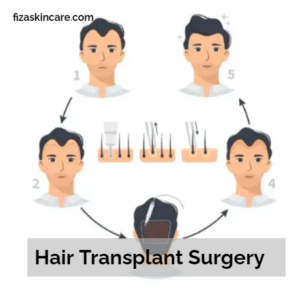
For more advanced cases of male pattern baldness, hair transplant surgery involves relocating hair follicles from a donor area to areas with thinning or no hair.
At-Home Hair Loss Treatments:
Scalp Massage:
- Stimulating the scalp through gentle massage increases blood circulation, promoting hair growth.
Hot Oil Treatments:
- Applying warm oil, such as coconut or olive oil, to the scalp can nourish hair and improve its overall health.
Aloe Vera Gel:
- Aloe vera has soothing properties and can be applied directly to the scalp to reduce inflammation and promote hair growth.
Egg Mask:
A homemade egg mask, rich in proteins and nutrients, can strengthen hair and prevent breakage.
Conclusion:
cherry-picking the right hair loss treatment requires an expressed approach, considering assignees similar to the type and cause of hair loss, gender, and respective health. Consulting with a healthcare professional or a dermatologist is essential to determine the most efficacious and safe treatment plan for your specific ball game. flashback, tolerance is crucial, as results may take time to become conspicuous. With the right treatment and care, regaining a full and healthy head of hair is a realistic goal for many individuals experiencing hair loss.
With preferences in medical wisdom and a range of available options, women sustaining hair loss have access to acclimatized results that can help restore and maintain healthy, vibrant hair. Taking a visionary way, seeking professional guidance, and espousing a holistic approach to health and heartiness are crucial factors in successfully maneuvering androgenic hair loss and other forms of hair thinning in women.
contending hair loss involves a multifaceted avenue, considering both the steadying causes and effective remedies. Whether you’re a woman dealing with female pattern hair loss or a man experiencing male pattern baldness, a combination of topical treatments, prescription medications, and lifestyle adjustments can make a significant difference. Consulting with a healthcare professional or dermatologist is pivotal for epitomized guidance and ensuring that the chosen medicaments are suitable for your specific condition. With the right approach, achieving a fuller, healthier head of hair is a realistic goal for many individuals experiencing hair loss.
The trip to healthier, maximum hair involves an amalgamation of professional treatments and at- home remedies acclimatized to individual requirements. Consulting with a healthcare professional or dermatologist is essential for a proper diagnosis and personalized treatment plan. With the right passage, it’s possible to halt hair fall, stimulate regrowth, and recapture assurance in your hair’s health and appearance.
